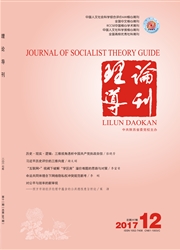

 中文摘要:
中文摘要:
从1949--2009年我国地方政府领导干部考核制度的发展过程,呈现为三个明显的阶段性特征:1949—1976年为第一阶段,以领导干部的政治忠诚为考核导向;1978--2001年为第二阶段,强调领导干部创造政绩,尤其是发展经济的能力;2002--2009年为第三阶段,强调领导干部具备全面素质,并能贯彻科学发展的要求。领导干部考核标准是地方政府统治合法性的反映,它引导了政府行为的价值趋向,并主导了工作的重点。对相关经验和教训的总结,有利于反思地方政府职能60年来所发生的变化,并得出有益的启示。
 英文摘要:
英文摘要:
From 1949 to 2009, China's development of leadership cadre evaluation system for local government hasundergone three distinct stages. From 1949 to 1976, the first stage focused on the political loyalty of leading cadres; the second stage from 1978 to 2001 emphasized the creation of performance of leading cadres; from 2002 to 2009, the third stage put emphasis on scientific development. Leading cadre assessment criteria reflect the government's legitimacy, guiding the value trends of the government actions. Through the present study, this paper will help to understand the changes of functions of government in the past six decades and draw useful lessons.
 同期刊论文项目
同期刊论文项目
 同项目期刊论文
同项目期刊论文
 期刊信息
期刊信息
